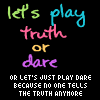Cooperative Learning is one of the best researched of all teaching strategies. The results show that students who have opportunities to work collaboratively, learn faster and more efficiently, have greater retention, and feel more positive about the learning experience. Needless to say, this is not to say that students can just be put into a group and assigned a project to complete. There are very specific methods to assure the success of group work, and it is essential that both teachers and students are aware of them. Recently there has been criticism of this process largely as a result of its misuse. To be perfectly clear, this is not a way for teachers to "get off the hook" as students work in groups while the teacher corrects papers! It is not a way for teachers to address the needs of "gifted" students by continually putting them in charge of learning groups. It is a way for students to learn essential interpersonal life-skills and to develop the ability to work collaboratively-- a skill now greatly in demand in the workplace. It is a way for students to take turns with different roles such as facilitator, reporter, recorder, etc. In a cooperative group, every student has a specific task, everyone must be involved in the learning or project, and no one can "piggyback." The success of the group depends on the successful work of every individual. A number of researchers have developed programs in this area, and we will be adding to this section. Let us begin with the work of Drs. Roger and David Johnson at the Cooperative Learning Center at the University of Minnesota.
Thursday, June 07, 2007
Subscribe to:
Post Comments (Atom)






0 comments:
Post a Comment